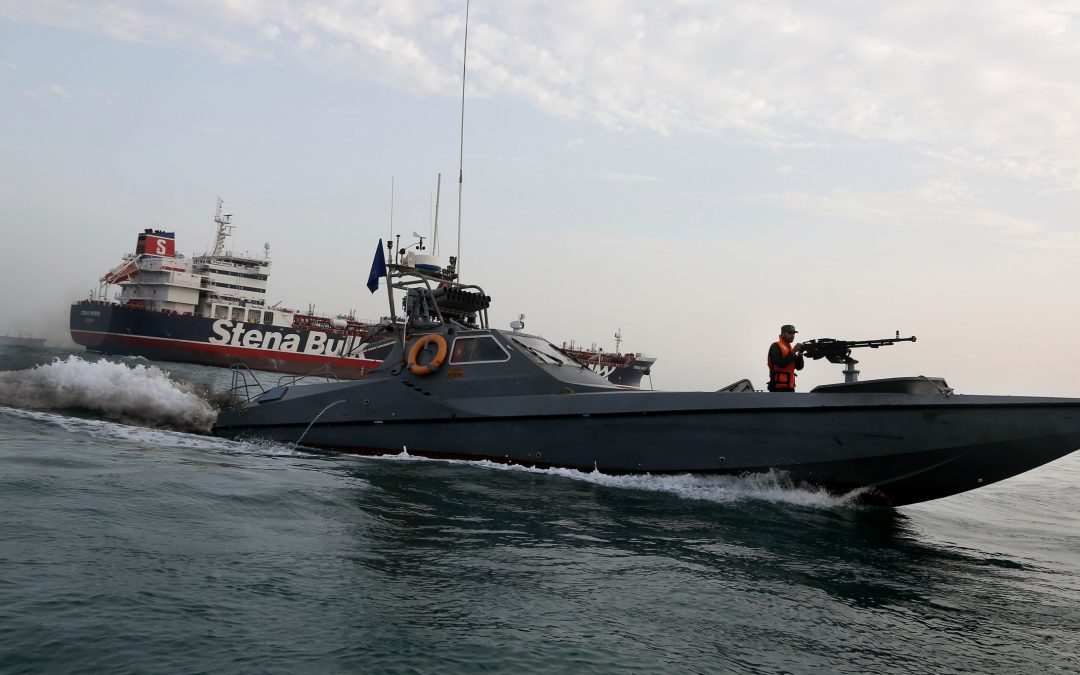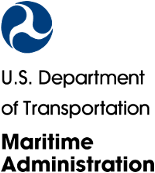Image: Iranian patrol boat and British-flagged oil tanker Stena Impero: Associated Press
Blog Editor’s Note: Below are a warning published by the US Maritime Administration, and a press report that quotes an unnamed US defense official. Long time readers will discern that there is a bit of confusion in the two reports about what exactly is going on in terms of spoofing (GPS, AIS, or communications?), jamming, and so on. But there is certainly a lot happening.
It should be no surprise that Iran is jamming GPS and perhaps spoofing signals as they have clearly done that before. These are common, easily employed techniques in today’s low intensity warfare.
This kind of navigation warfare has been going on around the world and in the Persian Gulf for quite some time. The first public report was when Iran bragged about capturing a CIA drone operating in Afghanistan in 2011 by spoofing its GPS receiver.
A couple thoughts on the below reports:
- The “AIS spoofing” discussed is not the same thing as spoofing GPS signals. AIS is identification equipment carried by a vessel that can be programmed to report that the vessel is any type the user wishes. So, for example, an Iranian patrol boat can program its AIS to transmit the identification info for a British oil tanker. This might deceive other vessels that aren’t close enough to have a visual on the patrol boat.
- A “US defense official” claims that Iran has been “jamming GPS signals” in the hopes ships will wander into their waters. That would not really be effective, and it wouldn’t make sense, since they clearly have the ability to spoof signals. Spoofing could make the ships sail, not wander, into their territorial seas. The folks we have spoken to haven’t seen any signs, yet, of spoofing, but we wouldn’t be surprised if they discover it eventually.
- We are not sure about the US defense official’s credibility, though, as at the end of the CNN article “The official said the Iranian jammers have no effect on US military warships and aircraft.” – Yeah, right.
MSCI Advisory
2019-012-Persian Gulf, Strait of Hormuz, Gulf of Oman, Arabian Sea, Red Sea-Threats to Commercial Vessels by Iran
Description: This revised advisory cancels U.S. Maritime Advisories 2019-004 and 2019-008.
- References: U.S. Maritime Alerts 2019-004A, 2019-003A, 2019-002A, and 2019-001A.
- Issue: Heightened military activity and increased political tensions in this region continue to pose serious threats to commercial vessels. Associated with these threats is a potential for miscalculation or misidentification that could lead to aggressive actions. Vessels operating in the Persian Gulf, Strait of Hormuz, and Gulf of Oman may also encounter GPS interference, bridge-to-bridge communications spoofing, and/or other communications jamming with little to no warning.
Since May 2019, the following maritime incidents have occurred in this region:
– Six attacks against commercial vessels (see U.S. Maritime Alerts 2019-002A and 2019-003A);
– Shoot-down of U.S. Navy remotely piloted aircraft over international waters;
– Attempted at-sea interdiction of Isle of Man-flagged M/V BRITISH HERITAGE;
– Seizure of ex-Panama-flagged M/V RIAH;
– Seizure of U.K.-flagged M/V STENA IMPERO (see U.S. Maritime Alert 2019-004A); and
– Detention and subsequent release of Liberian-flagged M/V MESDAR (see U.S. Maritime Alert 2019-004A).
In at least two of these incidents, vessels reported GPS interference. One vessel reportedly shut off its Automatic Identification System (AIS) before it was seized, complicating response efforts. Vessels have also reported spoofed bridge-to-bridge communications from unknown entities falsely claiming to be U.S. or coalition warships.
US government warns of Iranian threats to commercial shipping, including GPS interference
Updated 7:29 PM ET, Wed August 7, 2019
(CNN)The US Department of Transportation’s Maritime Administration has issued a new warning to commercial shipping about Iranian threats in the Strait of Hormuz and Persian Gulf, saying that some ships have reported having their GPS interfered with.




